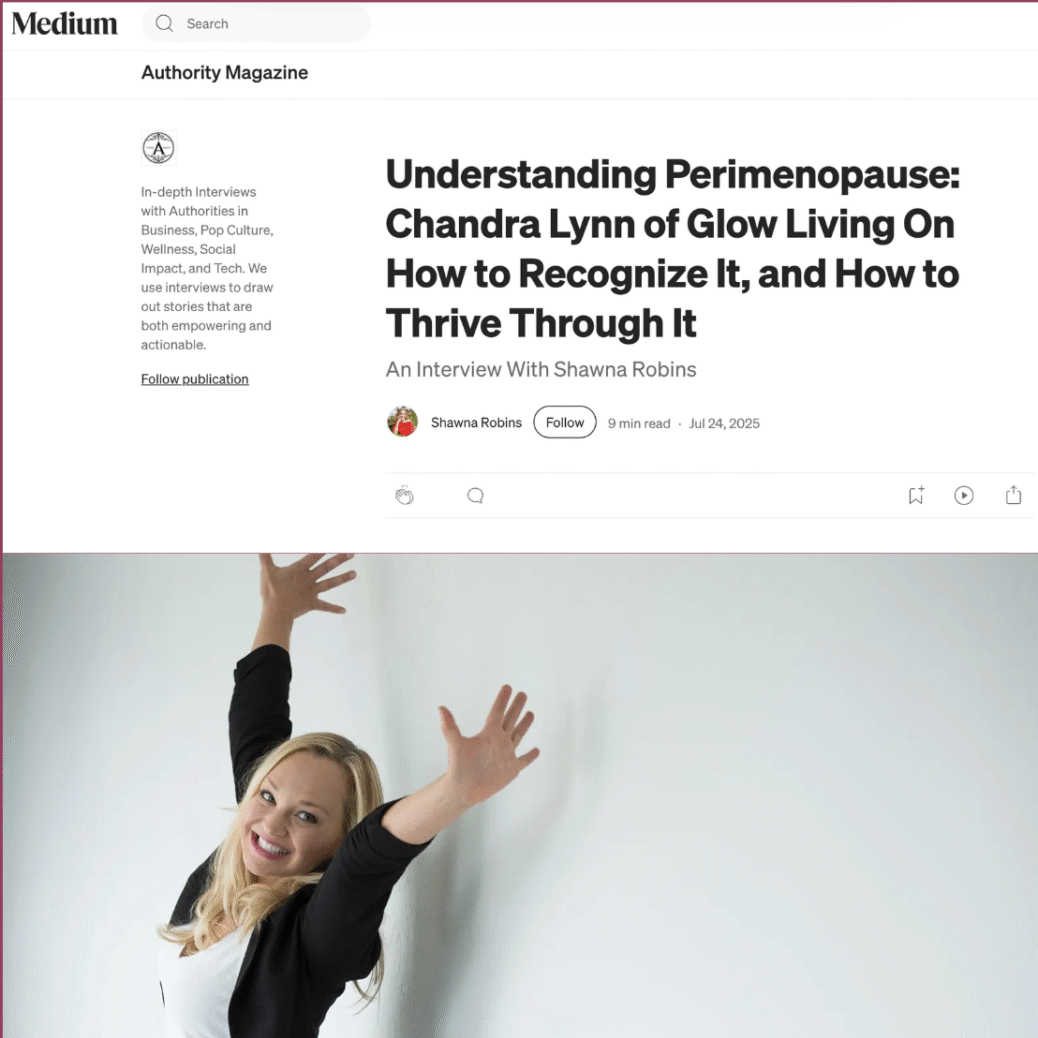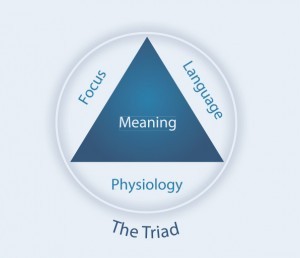An Interview With Chandra Lynn, Founder of Glow Living on Understanding Perimenopause
As featured in Authority Magazine | Written by Shawna Robins
Perimenopause can feel like a confusing, unpredictable time. One moment you’re managing just fine, and the next, you’re wondering why your emotions feel like a rollercoaster and your body’s usual routines no longer make sense.
But what if perimenopause was not something to “survive,” but rather an invitation to pause, reflect, and rise into a more powerful version of yourself?
That’s exactly what transformation coach and author Chandra Lynn wants women to know.
Founder of Glow Living and creator of the Root-to-Rise personal growth framework, Chandra helps women move through life’s transitions—like perimenopause—with clarity, emotional resilience, and renewed purpose. Drawing from her background leading high-pressure marketing for companies like Apple and Mercedes-Benz, as well as her certification in human needs psychology, Chandra brings both strategic insight and soulful guidance to midlife challenges.
In this candid conversation, she shares essential truths about perimenopause—and what women can do to thrive during this profound stage of life.
What Is Perimenopause, Really?
Chandra explains that perimenopause is the transitional phase leading up to menopause, often lasting several years. While menopause is defined as going 12 months without a period, perimenopause is the hormonal lead-up, often marked by mood shifts, irregular periods, sleep disturbances, and even cognitive changes like brain fog.
“It’s the wild hormonal rollercoaster before the cycle stops,” she says. “This is the part where women often feel the most off-balance—physically, emotionally, mentally.”
Early Signs and Common Misconceptions
Women may begin noticing small but persistent changes:
- Irregular cycles
- Sleep disruptions
- Heightened anxiety or irritability
- Brain fog or forgetfulness
- Weight fluctuations
Yet many dismiss these signs or assume they’re just “getting older.” Chandra wants to debunk the myth that it’s all in your head—or that you just have to tough it out.
“The emotional and cognitive symptoms are real. You don’t have to suffer in silence. There is support out there,” she says.
Mental Resilience Starts with Self-Awareness
Chandra’s Root-to-Rise book and coaching framework teaches women to identify their emotional needs—what she calls our “Hidden Forces.” Through tools like her free Hidden Forces Quiz, women can recognize which unmet needs may be causing tension or dissatisfaction, and begin healing from the inside out.
One technique she recommends is called The Triad, which helps shift emotional states through posture, focus, and language. It’s especially helpful when your nervous system feels hijacked by hormone-induced anxiety or overwhelm.
“The key is not pushing through—but tuning in,” she says. “Even small shifts can help you feel more grounded and in control.”
Lifestyle Changes That Make a Difference
Chandra emphasizes that perimenopause requires a new level of intentional self-care. While everyone’s body is different, her favorite go-to strategies include:
- Anti-inflammatory nutrition (cutting processed foods, increasing greens and healthy fats)
- Strength-based movement (to support metabolism and bone health)
- Evening wind-down routines to improve sleep (including magnesium and guided meditation)
- Nervous system regulation through breathwork, stretching, or walks in nature
She also personally uses bio-identical hormones, as well as herbs like ashwagandha and maca, and recommends talking to a provider about what’s right for you.
Thriving, Not Just Coping: Chandra’s Top 5 Tools
When asked what it really takes to thrive through perimenopause, Chandra offers these five powerful pillars:
- Self-Awareness Tools
Her Hidden Forces Quiz helps women identify unmet emotional needs.
“Once I realized my resentment stemmed from my need for Growth, I could communicate better instead of blame.”
- Supportive Rituals
From walk-and-talks with friends to journaling and daily “needs assessments,” these rituals help create structure and check in with what matters.
“I ask: Where is my energy needed most today—work, family, myself, or rest?”
- A Purpose Filter
Perimenopause often shakes your identity. Realigning with purpose helps create meaning through the changes.
“I shifted from burnout to writing my book and supporting other women in transition. That gave me new fuel.”
- Safe Community
Isolation can amplify shame. Chandra recommends joining or creating safe spaces like women’s circles or midlife forums.
“Sacred connection matters. Vulnerability should be normalized, not hidden.”
- Permission to Change
Letting go of outdated identities and embracing the woman you’re becoming is vital.
“At 55, I feel more emotionally stable, wise, and confident than ever. And that’s a gift of this stage—not a loss.”
Final Thoughts: You’re Not Alone
Chandra’s biggest message? You’re not broken. You’re evolving.
And evolution requires support, grace, and permission to rewrite the rules of who you are and what you need.
“We are not our thoughts,” she reminds readers. “Ageism can creep in internally, but we don’t have to subscribe to those beliefs. There’s strength in aging—and in sisterhood.”









